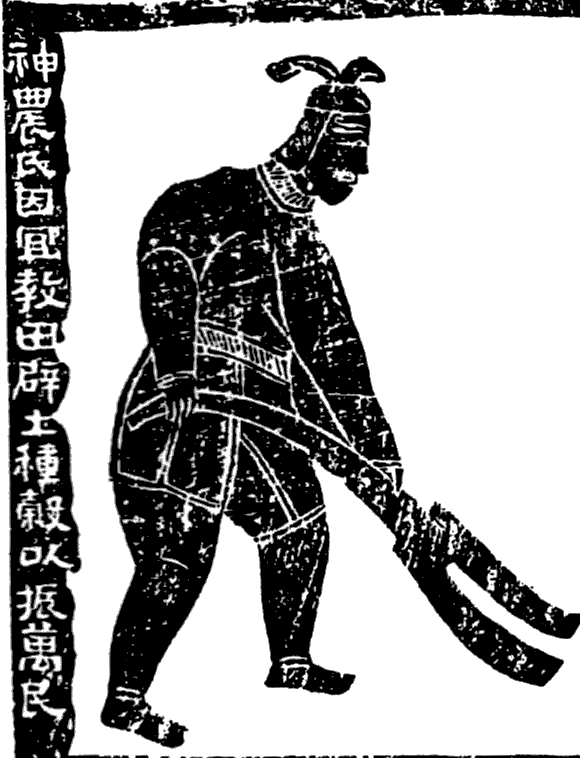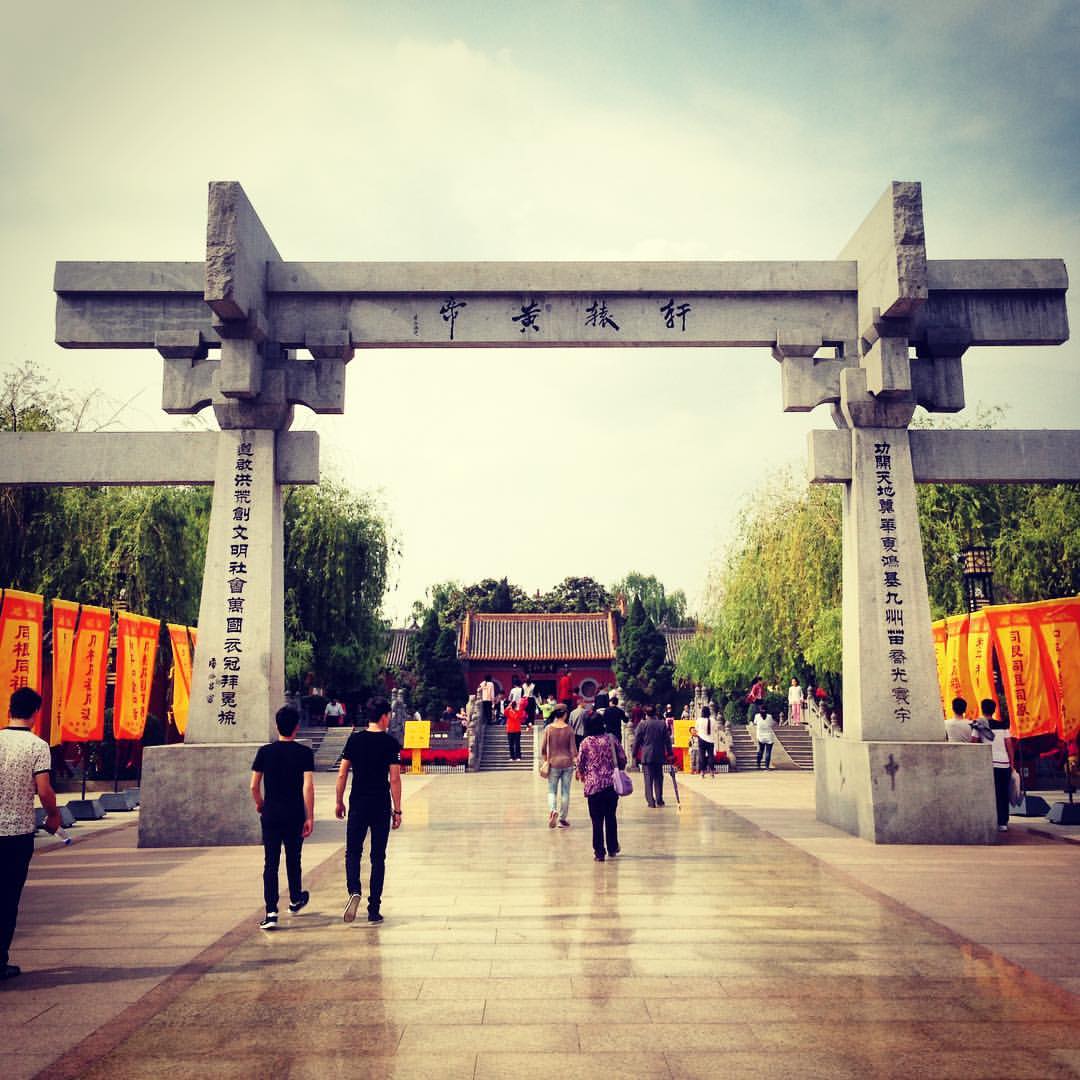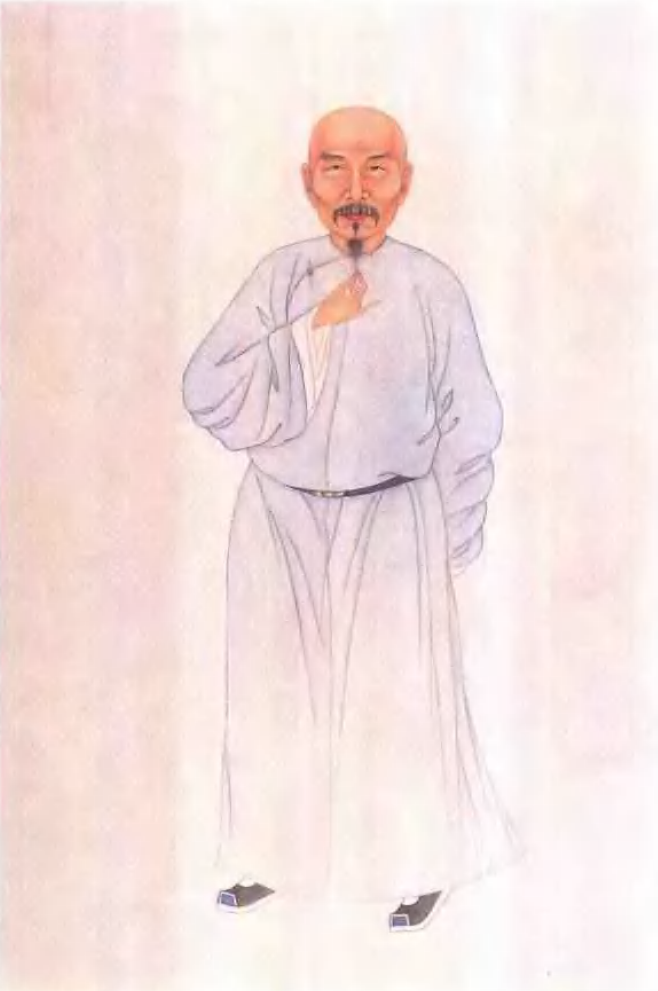|
New Text Confucianism
New Text Confucianism () is a school of thought in Confucianism that was based on Confucian classics recompiled in the early Han dynasty by Confucians who survived the burning of books and burying of scholars during the Qin dynasty. The survivors wrote the classics in the contemporary characters of their time, and these texts were later dubbed as "New Text". New Text school attained prominence in the Western Han dynasty and became the official interpretation for Confucianism, which was adopted as the official ideology by Emperor Wu of Han. Represented by Confucians such as Dong Zhongshu, this school advocated a holistic interpretation of Confucian classics and viewed Confucius as a charismatic, visionary prophet, a sage who deserved the Mandate of Heaven but did not attain kingship due to circumstances. The school competed with Old Texts, Old Text Confucianism in the later Han dynasty and its dominance waned as the latter became the new orthodoxy. The school fell into obscurity dur ... [...More Info...] [...Related Items...] OR: [Wikipedia] [Google] [Baidu] |
Confucianism
Confucianism, also known as Ruism or Ru classicism, is a system of thought and behavior originating in ancient China. Variously described as tradition, a philosophy, a religion, a humanistic or rationalistic religion, a way of governing, or a way of life, Confucianism developed from what was later called the Hundred Schools of Thought from the teachings of the Chinese philosopher Confucius (551–479 BCE). Confucius considered himself a transmitter of cultural values inherited from the Xia (c. 2070–1600 BCE), Shang (c. 1600–1046 BCE) and Western Zhou dynasties (c. 1046–771 BCE). Confucianism was suppressed during the Legalist and autocratic Qin dynasty (221–206 BCE), but survived. During the Han dynasty (206 BCE–220 CE), Confucian approaches edged out the "proto-Taoist" Huang–Lao as the official ideology, while the emperors mixed both with the realist techniques of Legalism. A Confucian revival began during the Tang dynasty (618–907 CE). In the late Tang, C ... [...More Info...] [...Related Items...] OR: [Wikipedia] [Google] [Baidu] |
Qing Dynasty
The Qing dynasty ( ), officially the Great Qing,, was a Manchu-led imperial dynasty of China and the last orthodox dynasty in Chinese history. It emerged from the Later Jin dynasty founded by the Jianzhou Jurchens, a Tungusic-speaking ethnic group who unified other Jurchen tribes to form a new "Manchu" ethnic identity. The dynasty was officially proclaimed in 1636 in Manchuria (modern-day Northeast China and Outer Manchuria). It seized control of Beijing in 1644, then later expanded its rule over the whole of China proper and Taiwan, and finally expanded into Inner Asia. The dynasty lasted until 1912 when it was overthrown in the Xinhai Revolution. In orthodox Chinese historiography, the Qing dynasty was preceded by the Ming dynasty and succeeded by the Republic of China. The multiethnic Qing dynasty lasted for almost three centuries and assembled the territorial base for modern China. It was the largest imperial dynasty in the history of China and in 1790 the f ... [...More Info...] [...Related Items...] OR: [Wikipedia] [Google] [Baidu] |
Shennong
Shennong (), variously translated as "Divine Farmer" or "Divine Husbandman", born Jiang Shinian (), was a mythological Chinese ruler known as the first Yan Emperor who has become a deity in Chinese and Vietnamese folk religion. He is venerated as a culture hero in China and Vietnam. In Vietnamese he is referred to as Thần Nông. Shennong has at times been counted amongst the Three Sovereigns (also known as "Three Kings" or "Three Patrons"), a group of ancient deities or deified kings of prehistoric China. Shennong has been thought to have taught the ancient Chinese not only their practices of agriculture, but also the use of herbal drugs. Shennong was credited with various inventions: these include the hoe, plow (both ''leisi'' () style and the plowshare), axe, digging wells, agricultural irrigation, preserving stored seeds by using boiled horse urine, the weekly farmers market, the Chinese calendar (especially the division into the 24 ''jieqi'' or solar terms), and to ... [...More Info...] [...Related Items...] OR: [Wikipedia] [Google] [Baidu] |
Yellow Emperor
The Yellow Emperor, also known as the Yellow Thearch or by his Chinese name Huangdi (), is a deity ('' shen'') in Chinese religion, one of the legendary Chinese sovereigns and culture heroes included among the mytho-historical Three Sovereigns and Five Emperors and cosmological Five Regions' Highest Deities (). Calculated by Jesuit missionaries on the basis of Chinese chronicles and later accepted by the twentieth-century promoters of a universal calendar starting with the Yellow Emperor, Huangdi's traditional reign dates are 2697–2597 or 2698–2598 BC. Huangdi's cult became prominent in the late Warring States and early Han dynasty, when he was portrayed as the originator of the centralized state, as a cosmic ruler, and as a patron of esoteric arts. A large number of texts – such as the ''Huangdi Neijing'', a medical classic, and the '' Huangdi Sijing'', a group of political treatises – were thus attributed to him. Having waned in influence during most of the ... [...More Info...] [...Related Items...] OR: [Wikipedia] [Google] [Baidu] |
Wei Yuan
Wei Yuan (; April23, 1794March26, 1857), born Wei Yuanda (), courtesy names Moshen () and Hanshi (), was a Chinese scholar from Shaoyang, Hunan. He moved to Yangzhou, Jiangsu in 1831, where he remained for the rest of his life. Wei obtained the provincial degree ('' juren'') in the Imperial examinations and subsequently worked in the secretariat of several statesmen such as Lin Zexu. Wei was deeply concerned with the crisis facing China in the early 19th century; while he remained loyal to the Qing Dynasty, he also sketched a number of proposals for the improvement of the administration of the empire. Biography From an early age, Wei espoused the New Text school of Confucianism and became a vocal member of the statecraft school, which advocated practical learning in opposition to the allegedly barren evidentiary scholarship as represented by scholars like Dai Zhen. Among other things, Wei advocated sea transport of grain to the capital instead of using the Grand Canal and ... [...More Info...] [...Related Items...] OR: [Wikipedia] [Google] [Baidu] |
Heshen
Heshen (; ; 1 July 1750 – 22 February 1799) of the Manchu Niohuru clan, was an official of the Qing dynasty favored by the Qianlong Emperor and called the most corrupt official in Chinese history. After the death of Qianlong, the Jiaqing Emperor confiscated Heshen's wealth and forced him to commit suicide. As an official, he acquired an estimated at 1.1 billion taels of silver, equal to roughly USD $270 billion. Heshen is remembered as one of the richest men in history. Born Shanbao (Shan-pao; ), his name was later changed to Heshen. His courtesy name was Zhizhai (Chih-chai; ). He was a member of the Plain Red Banner. Ascendance Heshen was the son of a Manchu military officer and studied at a school for Manchu aristocratic boys. He lost his mother when he was young and it was said he and his younger brother had a hard life under his stepmother. However, Heshen was an excellent student, knowing Middle Mandarin, Manchu, Mongolian and Tibetan. In 1772, he began work in the ... [...More Info...] [...Related Items...] OR: [Wikipedia] [Google] [Baidu] |
Liu Fenglu
/ ( or ) is an East Asian surname. pinyin: in Mandarin Chinese, in Cantonese. It is the family name of the Han dynasty emperors. The character originally meant 'kill', but is now used only as a surname. It is listed 252nd in the classic text Hundred Family Surnames. Today, it is the 4th most common surname in Mainland China as well as one of the most common surnames in the world. Distribution In 2019 劉 was the fourth most common surname in Mainland China. Additionally, it was the most common surname in Jiangxi province. In 2013 it was found to be the 5th most common surname, shared by 67,700,000 people or 5.1% of the population, with the province with the most people being Shandong.中国四百大姓, 袁义达, 邱家儒, Beijing Book Co. Inc., 1 January 2013 Origin One source is that they descend from the Qí (祁) clan of Emperor Yao. For example the founding emperor of the Han dynasty (one of China's golden ages), Liu Bang (Emperor Gaozu of Han) was a descendant of E ... [...More Info...] [...Related Items...] OR: [Wikipedia] [Google] [Baidu] |
Zhuang Cunyu
Zhuang Cunyu (莊存與, 1719–1788) was a Chinese intellectual, and a representative of the Changzhou School of Thought, an important proponent of the New Text Confucianism. ''Jinshi'' degree holder (1745), secretary to the Qianlong Emperor. Background Zhuang lineage traced itself from the N.Song refugees who had moved south being pressed by the Jurchen invasion. During the Ming dynasty, Zhuangs grew up tp become an influential local elite sympathizing with the Donglin movement (however not recorded as its direct participants). Though some members retired from public life during the Ming-Qing transition, the lineage continued to prosper and produced an outstanding amount of the ''jinshi'' degree holders: 29 during the whole timespan of the Qing (after producing 6 during the Ming). Father (Zhuang Zhu) and uncle (Zhuang Kai) of Cunyu were Hanlin academicians. As reported by Dai Wang in "Yanshi xueji", Cunyu's father was influenced by the practical teaching of Yan Yuan 颜元 ... [...More Info...] [...Related Items...] OR: [Wikipedia] [Google] [Baidu] |
Liu Xin (scholar)
Liu Xin (; c. 50 BCE – 23 CE), courtesy name Zijun (), was a Chinese astronomer, mathematician, historian, librarian and politician during the Western Han Dynasty (206 BCE – 9 CE) and Xin Dynasty (9 – 23 CE). He later changed his name to Liu Xiu () due to the naming taboo of Emperor Ai of Han. He was the son of Confucian scholar Liu Xiang (77 – 6 BCE) and an associate of other prominent thinkers such as the philosopher Huan Tan (c. 43 BCE – 28 CE). Liu founded the Old Text school of Confucianism. Early life Liu Xin was the son of Confucian scholar Liu Xiang (77 – 6 BCE). Liu was a distant relative of Liu Bang, the founder of the Han dynasty, and was thus a member of the ruling dynastic clan (the Liu family). Liu Xin's paternal grandfather ranked as a marquess. Librarian As a curator of the imperial library he was the first to establish a library classification system and the first book notation system. At this time the library catalog was written on ... [...More Info...] [...Related Items...] OR: [Wikipedia] [Google] [Baidu] |
He Xiu
He or HE may refer to: Language * He (pronoun), an English pronoun * He (kana), the romanization of the Japanese kana へ * He (letter), the fifth letter of many Semitic alphabets * He (Cyrillic), a letter of the Cyrillic script called ''He'' in Ukrainian * Hebrew language (ISO 639-1 code: he) Places * He County, Anhui, China * He River, or Hejiang (贺江), a tributary of the Xi River in Guangxi and Guangdong * Hebei, abbreviated as ''HE'', a province of China (Guobiao abbreviation HE) * Hesse, abbreviated as ''HE'', a state of Germany People * He (surname), Chinese surname, sometimes transcribed Hé or Ho; includes a list of notable individuals so named * Zheng He (1371–1433), Chinese admiral * He (和) and He (合), collectively known as 和合二仙 ('' He-He er xian'', "Two immortals He"), two Taoist immortals known as the "Immortals of Harmony and Unity" * Immortal Woman He, or He Xiangu, one of the Eight Immortals of Taoism Arts, entertainment, and media * "He" (sh ... [...More Info...] [...Related Items...] OR: [Wikipedia] [Google] [Baidu] |
Gongyang Zhuan
The ''Gongyang Zhuan'' (), also known as the ''Gongyang Commentary on the Spring and Autumn Annals'' or the ''Commentary of Gongyang'', is a commentary on the ''Spring and Autumn Annals'', and is thus one of the Chinese classics. Along with the '' Zuo Zhuan'' and the ''Guliang Zhuan'', the work is one of the ''Three Commentaries on the Spring and Autumn Annals''. In particular, ''Gongyang Zhuan'' is a central work to New Text Confucianism (), which advocates Confucius as an institutional reformer instead of a respected scholar, and ''Chunqiu'' as an embodiment of Confucius' holistic vision on political, social, and moral issues instead of a merely chronicle. ''Gongyang Zhuan'' significantly influenced the political institution in Han Dynasty. It fell out of favor among elites and was eventually replaced by the ''Zuo Zhuan''. ''Gongyang Zhuan'' scholarship was reinvigorated in late Ming Dynasty and became a major source of inspiration for Chinese reformers from eighteen to early twen ... [...More Info...] [...Related Items...] OR: [Wikipedia] [Google] [Baidu] |



